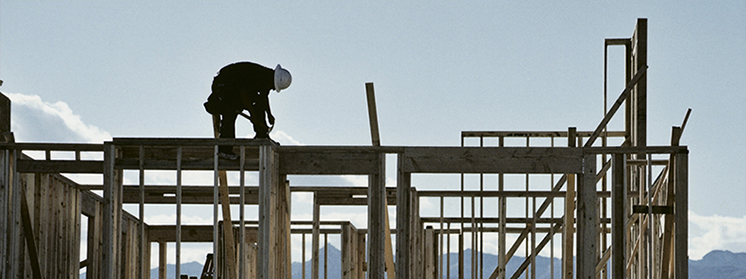What Happens to Unfinished Commercial Real Estate Properties?
| July 18, 2014

Let’s time travel back to 1999 when the technology market was soaring high. Company A hits the jackpot with a dot-com boom and suddenly realizes, “we need more space!” So, Company A purchases a 100-acre property and begins construction with plans to grow the company ten fold. We know how this story ends.
When the dot-com boom bursts, Company A halts construction. Now, the 400,000 square office space sits vacant, unfinished and for sale. History repeated itself in revised fashion during the last five years or so, as the housing market crash rendered commercial construction financing hard to come by – leaving mid-construction commercial projects stalled or foreclosed.
With the economy in a constant state of flux, these situations are frequent. In some cases, the property owner will attempt to sell the property in an unfinished state. In the most dire of situations, the property ends up in foreclosure and owned by the bank. In either case, a purchaser or bank faces finishing the job, and the estimated cost to do so becomes the primary consideration. In the case of bank-owned property, the cost and hassle of completing construction may outweigh the benefits of doing so, resulting in the bank itself listing the property for sale in an unfinished state. A savvy purchaser of an unfinished property will determine the cost to complete construction (and more) prior to closing.
When in the market for commercial real estate, unfinished properties may be an option worth considering. There are many advantages and disadvantages to consider, but a few of the biggest are the following:
Advantages
- Reduced purchase price
- Depending on stage of construction, ability to customize the space
- Zoning and other approvals may already be in place
Disadvantages
- Purchase terms will likely be “as is”, particularly where a bank is the seller
- Completed construction may not be up to par, or may have deteriorated depending on how long the project has sat unfinished and exposed to the elements
- Costly appraisals and opinions from engineers may be required to secure bank financing
As evident in the above pros/cons snapshot, purchasing an unfinished commercial property requires thorough consideration of legal and economic issues. Because the property will likely be purchased at a discount (sometimes significant), the typical seller will make close to zero representations or warranties regarding the property and the quality of construction that has been completed. This is particularly true if the seller is a bank. A commercial real estate attorney is an important resource for a purchaser of unfinished commercial property, because a well-drafted purchase agreement providing for a lengthy due diligence period and a variety of contingencies to closing may be essential. Since recourse against the seller will be limited, a buyer must expend the time and money prior to closing to determine what they are purchasing – assistance from a commercial real estate attorney, engineer and builder is highly recommended.
With the right advice and a little patience, purchasing unfinished commercial property may be the perfect opportunity to own your own space. As an added benefit, that eye-sore gets put to productive use, benefiting the entire surrounding community. But, just remember, it’s not time to be “penny-wise, pound foolish,” no matter how great the deal.





